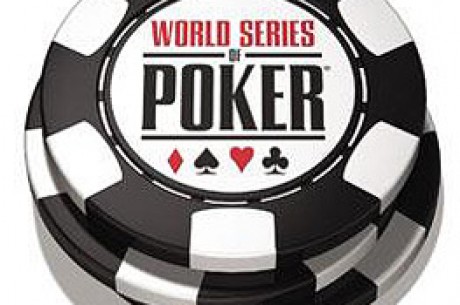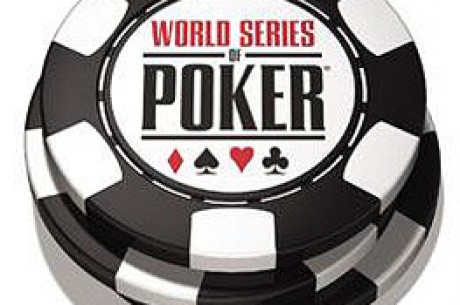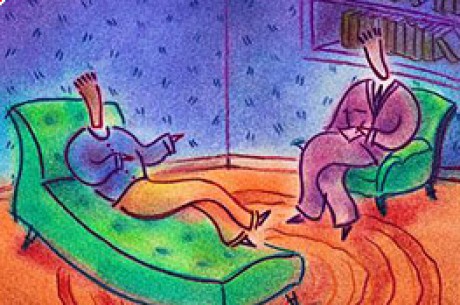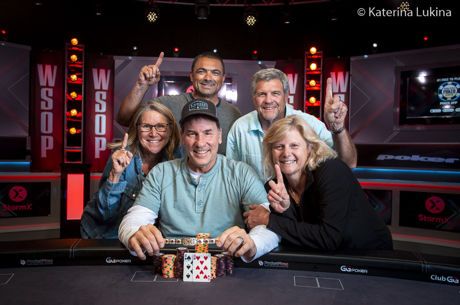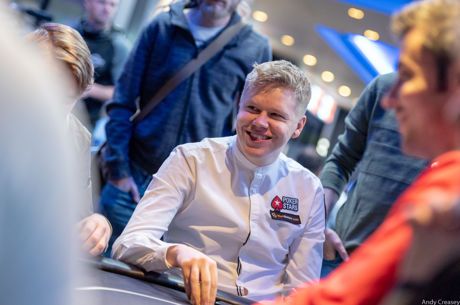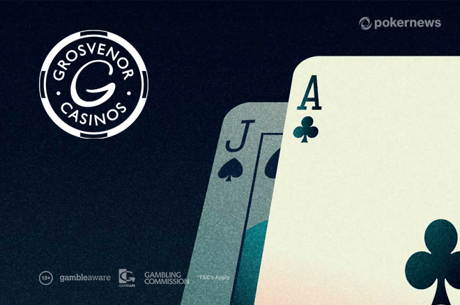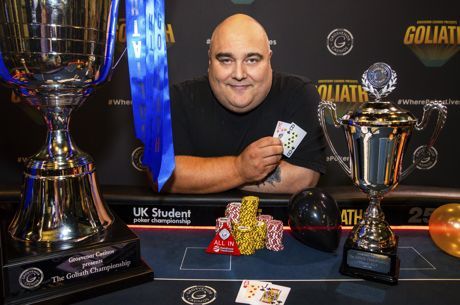The Poker Counselor's Corner (32)
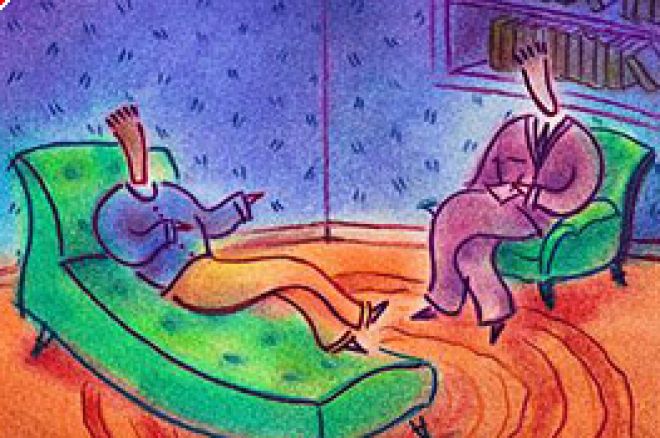
Editor's Note: In addition to being a poker enthusiast, gambling columnist, and lecturer, John is a National Certified Counselor (NCC). He has a Master of Arts degree in Counseling from West Virginia University, and a Bachelor's degree in Psychology with a minor in Sociology from Lock Haven University. You can arrange for interviews, speaking engagements, or ask your question to "the Poker Counselor" at [email protected]
Every time that I play I usually get up pretty big in the beginning, ex: I usually buy in for $50-100 dollars online at low limit Pot Limit Omaha (.50-.1.00 blinds. In the first couple of hours I play extremely good, good hand selection, the right reads and proper lay downs. As soon as I get up, usually $400-500 dollars I lose focus and start to get loose and reckless. I call raises with non premium hands and call down on the river even though I know that I am beat. I think it is due to the fact that I had already won a good sum of money and really don't care. How can I get out of this bad poker habit? -Emailed by Luka D.
Well, your poker "habit" is more than just a habit. It involves your complete mindset and poker psychology. You see, there is a major leak in your poker thinking that is costing you big dollars. When you accumulate chips, you change your style and play sloppy poker. Great poker players do not allow such mistakes to seep into their game. I believe that the money in your total is alerting your emotional state, which (in turn) changes the way you play your hands. It is a terrible mistake to allow your chip stack to alter your decision making process in any cash game. This is a common mistake, though, especially in newer players. I find that most new players mimic their game to the NL tournaments that air on television. In a tournament setting, you do indeed have a goal to knock out your opposition. Thus, it is more acceptable to call with mediocre hands as you hope to blindside the shorter stacks. In a cash game, your goal is to win as much money as you can. There is no need to outlast any of your competitors. Yet you may feel that hyper-aggressive rush come over you when you gather chips in a cash game, as your brain clicks into tournament mode. In addition to this tournament-style influence, another major factor in your poorer play is your interpretation of the chips in front of you. The mind easily slips into a mode of satisfaction and power after rolling a $50 buy-in into over $400. The satisfaction robs you of the insatiable drive to stay focused and hungry. The power makes for a feeling of invincibility and superiority, allowing for sloppy play with marginal hands. In addition, the won money does not feel like YOUR money. Calling $8 with J-8 suited seems more personally acceptable with $350 profit already in front of you than with your original $50 buy-in. This mindset is dangerous and costly. To combat the effects of your leak, you need to take serious action in a quick manner. First, set a clear goal before starting each session. Do you intend to play for a certain set time (such as 4 hours) or a certain amount (such as profit of $300)? When that goal is achieved, it is time to cash out and evaluate your next move. Then, do some consistent self-evaluation while at the tables. I like to check my emotional state, focus, and energy each time the button passes my by. By doing this, I know when I need to take a break or quit altogether. Other serious players do a similar self-evaluation after certain time intervals or as they win/lose a certain amount of chips. You need to find your own appropriate cue to remind you to check yourself. If your look inward exposes the leak, it is time to boldly fix the leak or to exit the game. There is no definitive end to a cash game, like there is during tournament play. Thus, find a way to build-in your own end point. With that, find a way to extract the psychological positives that might accompany a tournament cash win. Now that you've identified the problem, don't let it mindlessly affect you ever again.
What's your thoughts on telling your friends that you know their tells? We play the same home game every 2 weeks. My one buddy stares at his opponent when he is bluffing, and he looks at the table when he has a good hand. Many of us know the tell and use it to beat him every week. I almost feel bad about it at this point. -Emailed by Kruiser
The common poker player thinking is that you never expose a tell that an opponent is leaking. In this case, though, your opposition is also a friend. I suspect that you and your buddies are, like most new players, dreaming of doing dream things in poker. You'd all like to meet success and enjoy profits from tournament and cash game play. In order to improve, you need to hone your skills versus good competition. A varsity football team does not get much better by beating up the middle-school's team. Instead, the varsity team looks to scrimmage a better team to help them improve. Your game is not benefiting from using this single tell against him. Likewise, you might need to be helping each other as you all attempt to improve. If you are ever leaking a tell, perhaps one of your buddies could alert you to the mistake. I guess the choice is ultimately up to you. If the cash you win from him is very important to you, then keep your mouth shut. If you are more interested in improving and making the poker "climb", then share the tell with your friend. Your bi-weekly game will be tougher, and you might open up a dialogue that'll help you learn from your poker buddies.
KEEP THOSE QUESTIONS COMING!!! [email protected]
Ed Note: Hurry, and sign up this morning for our $5,000 Freeroll at Poker Stars

